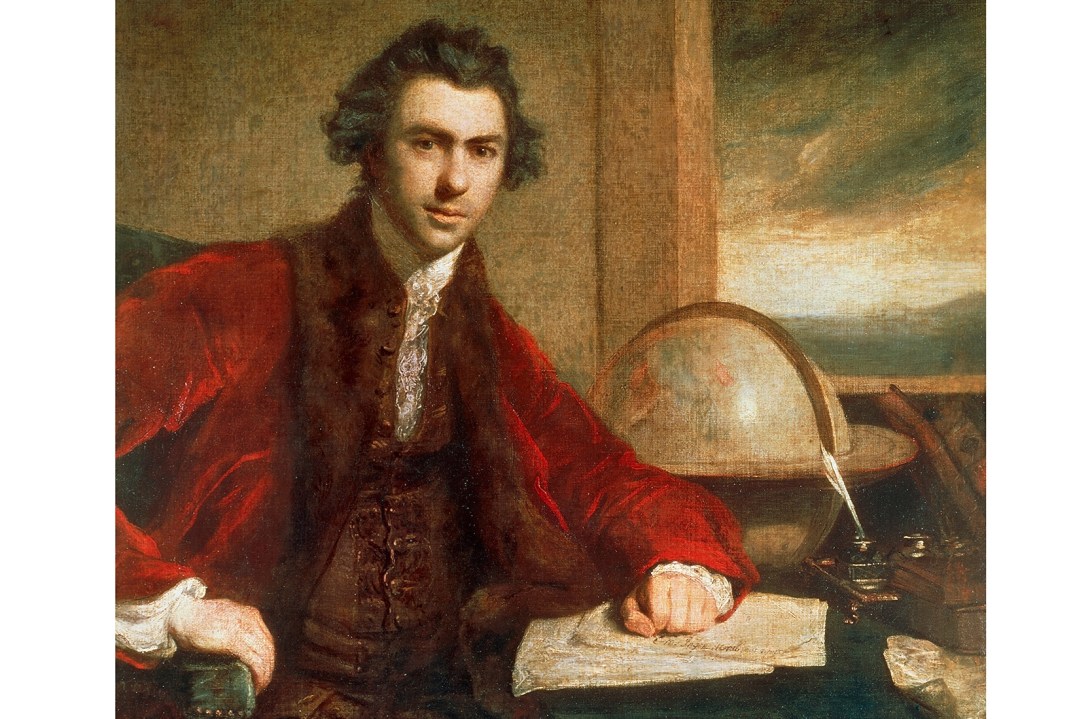When the wealthy young Joseph Banks announced that he intended joining Captain Cook’s expedition to Tahiti to observe the Transit of Venus, friends asked why he didn’t instead do the Grand Tour. ‘Every blockhead does that,’ Banks replied. ‘My Grand Tour shall be one round the whole globe.’
It was a wise decision, and his voyage on HMS Endeavour would be the making of him. He returned with an extraordinary haul of natural history specimens and would thereafter more or less fall into important roles on the strength of his experiences, whether it was as the unofficial director of Kew, which he would make into the world’s most important botanical garden, or ‘head of Australian affairs’, enthusiastically promoting the newly discovered country as a penal colony.
He had so many interests that he sometimes neglected more important tasks, such as publishing a florilegium of the Endeavour expedition or the journals he kept of the voyage, and this lack of rigour led some to dismiss him as a mere amateur. Toby Musgrave instead champions Banks as one of this country’s most important and influential naturalists, without attempting to gloss over the less appealing aspects of his life and career.
‘Hunger is certainly most excellent sauce,’ said Banks, as everyone sat down to a dinner of broiled shags
Having studied botany, ostensibly at Oxford but more productively with a private tutor, Banks managed to attach himself to an expedition to Newfoundland and Labrador when he was just 23. He would subsequently claim, with some justification, that he was the first ‘man of Scientifick education’ to join a voyage of discovery in order to make a study of the flora and fauna encountered there, something that became standard practice thereafter. He later became instrumental in sending other botanists all over the world to gather plants for the Royal Botanic Gardens at Kew, and this led to his deserved reputation as ‘the father of modern scientific plant-hunting’, ultimately responsible for the introduction of innumerable plants into English gardens.
The voyage to the South Seas was a joint enterprise of the Royal Society, to which the young Banks had already been elected, and the Royal Navy, which appointed James Cook as commander. The Endeavour was a converted Whitby collier that proved both slow-moving (the trip would last three years) and uncomfortably small. Conditions would have been cramped even before the crew was joined by Banks and the team of eight botanists, cataloguers, artists and servants he employed to accompany him, chief among them Daniel Solander, a pupil of Linnaeus and Britain’s leading botanist.
They were officially designated ‘supernumeraries’, but Banks proved far more than that when the Endeavour reached its destination. During the three months they spent on Tahiti he quickly acquired a smattering of the Maohi language and so was deputed to barter for provisions as well as negotiate between the islanders and the crew in their disputes. He also became an ethnographer, writing the first detailed account of Tahiti and introducing the word ‘tattoo’ into the English language. While some of his observations may seem unacceptable today, they were the result of a genuine and friendly interest in the islanders and their culture.
Banks’s main task, however, was to gather specimens wherever the ship sailed or made landfall, and he returned to Britain with more than 1,000 birds, fishes, molluscs arthropods and other animals, and around 30,300 plants, of which some 1,400 were previously unknown to science. More immediately, many of the seabirds he shot so that they could be sketched and catalogued were used to supplement the crew’s diet. ‘Hunger is certainly most excellent sauce,’ Banks commented after everyone had sat down to a dinner of ‘broiled shags’.
Having successfully observed the Transit, they expected to head home, but Cook had been tasked in secret by the Admiralty with instead going in search of the Terra Australis Incognita, a southern continent that was merely rumoured to exist. The ship reached the south-eastern coast of Australia in April 1770, Cook famously dubbing their landing place Botany Bay because of ‘the great quantity of new plants Mr Banks and Dr Solander collected’. Having claimed the land he dubbed New South Wales for Britain, Cook at last headed home, a voyage during which the Endeavour very nearly sank after hitting a reef and suffered outbreaks of typhoid and malaria that resulted in numerous deaths, among them several of Banks’s team.
Undaunted, Banks intended joining Cook’s second voyage, but he had become somewhat puffed up by fame, and the intemperate demands he made to accommodate him led to his staying behind. A short trip to Iceland, his last expedition, was a poor substitute.
In order to cover Banks’s many subsequent occupations and interests, Musgrave abandons his chronological approach after the Iceland trip, proceeding instead thematically. This doesn’t altogether work, as many distracting cross-references in the text acknowledge. He nevertheless provides a full, clear-eyed and highly readable account of an engaging, if flawed, man who did indeed do much to shape the world.







Comments